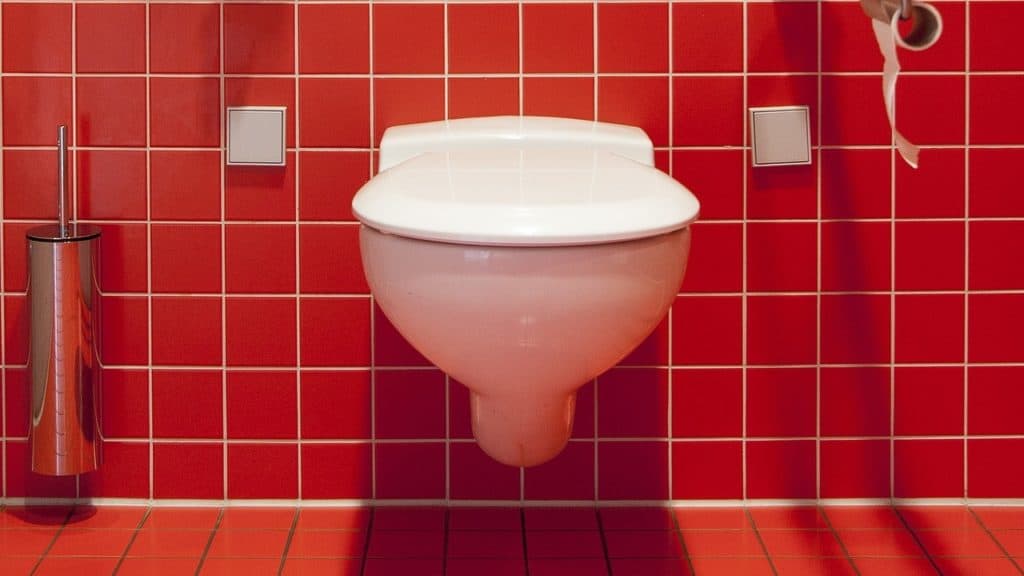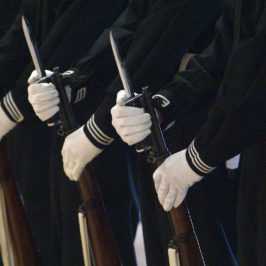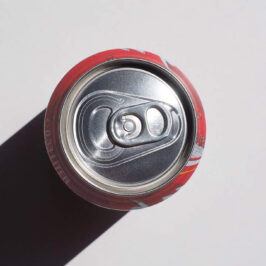
How many of these English words and phrases did you realise have a French origin? They’re not obvious, including the British ‘loo’!
Lots of English words and phrases have evolved from other languages (you might argue that they all did, depending on how far back you go). As an editor of books set in France, I’m particularly interested in words with a French origin.
Let’s look at just five expressions that come from the French language.
Wreak havoc
Meaning: To cause destruction and extreme confusion.
Example of use: The storm wreaked havoc on the small seaside town.
Origin: The English term ‘wreak havoc’ stems from the old French expression for ‘plunder’: cry havot. This was used in the 13th century and evolved into a mixture of the two languages: ‘cry havoc’. Generals during a military campaign would shout, “Cry havoc!” to announce the battle was won and the soldiers could begin looting.
Despite Richard II banning the phrase (on pain of death!) in 1386, Shakespeare used it in some of his plays, so it lived on outside a military context.
Left in the lurch
Meaning: Left at a disadvantage, in a vulnerable or unsupported position.
Example of use: She didn’t pay her share of the rent and left me in the lurch.
Origin: This English expression comes from the card game cribbage, in which a player who is trailing by a wide margin is said to have been left in the lurch. This, in turn, comes from an old French dice game called lourche. The trailing player incurs a lourche (a disadvantage).
Hullabaloo
Meaning: A loud commotion or violent disturbance.
Example of use: When he arrived, the dogs created such a hullabaloo!
Origin: This term comes from hurluberlu, a 17th-century French word for ‘scatter-brained’. While the meaning has somewhat changed, the sense of chaos is still present!
Jeopardy
Meaning: To be in danger of injury, loss or death.
Example of use: If you tell the truth, your job could be in jeopardy.
Origin: The word ‘jeopardy’ is from the French jeu parti, meaning ‘divided game’. Such a game is of uncertain outcome.
Loo
Meaning: British English word for the toilet/restroom.
Example of use: I’ll just pop to the loo, then we can go.
Origin: The exact origin is unclear, but there are plenty of theories, many of which involve French. The most frequently cited origin is from a time when people emptied chamber pots out of the window, shouting, “Gardyloo!” to warn people below. This was from the French gardez l’eau, meaning ‘mind the water’. However, this expression seems to have become obsolete before the word ‘loo’ took hold.
Other explanations include the evolution of the French le lieu, meaning ‘the place’ (to do your business), and an adaptation of the 18th-century French word for chamber pot – bourdaloue.
After having read an OUP article about the origins of the word ‘loo’, reason suggests to me the most likely origin is le lieu. After all, the French use this as a euphemism for the toilet, as do the Germans (Lokus – the place). Let me know what you think!
The English word 'loo' is most likely to have come from the French 'le lieu', as in 'the place' (to do your business). Share on XOver to you
Which words or phrases of French origin do you know? Drop them in the comments!
If you liked this post, you may enjoy the others in the series:
- Everyday English phrases with sporting origins
- Surprising origins of food-related phrases
- Common English phrases involving animals
Thanks to Albert Jack’s Red Herrings and White Elephants and Harry Oliver’s March Hares and Monkeys’ Uncles for providing me with some of the source material for this article.
Disclosure: Some of the links on this page are affiliate links. This means, at zero cost to you, I will earn an affiliate commission if you click on the link and finalise a purchase. This helps me to keep this website running. I only recommend products and services that I trust and am comfortable endorsing. Find out more.









Stephanie Boerman
Hi Debbie,
re “hullabaloo” – might “hurlyburly” share the same origin?
One of my favourite English/French terms – “love” in tennis, from “le oef” and then (top favourites) almost all the terms used in cyclosport: peloton, echelon, bidon, etc etc. And obviously the culinary terms – hundreds of them.
I enjoy your website very much.
Debbie Emmitt
Hi Stephanie, thanks for these really interesting examples! I agree that ‘hurlyburly’ could well have the same origin as ‘hullabaloo’. I’ll have to do some digging! And, as a Wimbledon fan and a francophile, I’m ashamed to say that I never realised where ‘love’ in tennis came from. Thanks for the insight!
I’m so pleased you get something out of my website. Thanks for letting me know, and if there are any topics you’d like me to write about in the future, just give me a shout!
Sally M. Chetwynd
One of my pastimes is portraying a military field engineer with fellow Civil War reenactors. Many of the words for the fortifications and other field works for defense are from French. When I do demonstrations for school children, they get a kick out of the use of the French word “fraise,” which means “strawberry,” to mean a series of pointed sticks stuck in the ground, in rings around a fort. Other engineering words that English military borrowed from the French include abattis and chevaux de frise. In addition, all of the commands in the bayonet drill for foot soldiers were in French. (That drill is like watching a form of ballet, very graceful.)
Debbie Emmitt
Hi Sally, what a fascinating pastime! That’s interesting that in English we use French terms for fortifications etc. Possibly from past invasions? And I noticed that you (inadvertently or otherwise!) used two French words in your last two sentences – bayonet and ballet. I just looked them up. Bayonet is from French baïonnette, from Bayonne in south-west France, where they were originally made. Ballet has a more circuitous history: (from Wikipedia) “Ballet is a French word which had its origin in Italian balletto, a diminutive of ballo (dance) which comes from Latin ballo, ballare, meaning “to dance”, which in turn comes from the Greek “βαλλίζω” (ballizo), “to dance, to jump about”. The word came into English usage from the French around 1630.”
Isn’t language fascinating?!